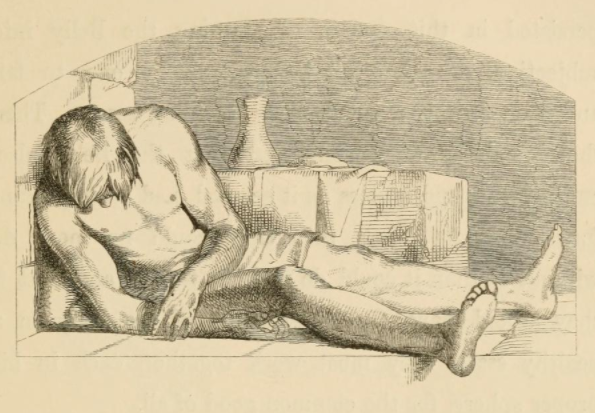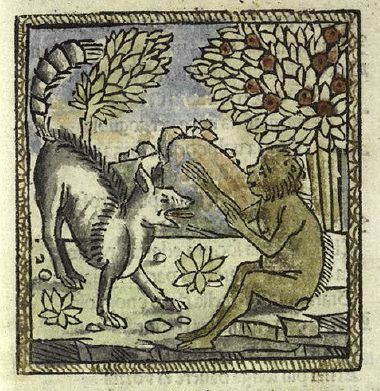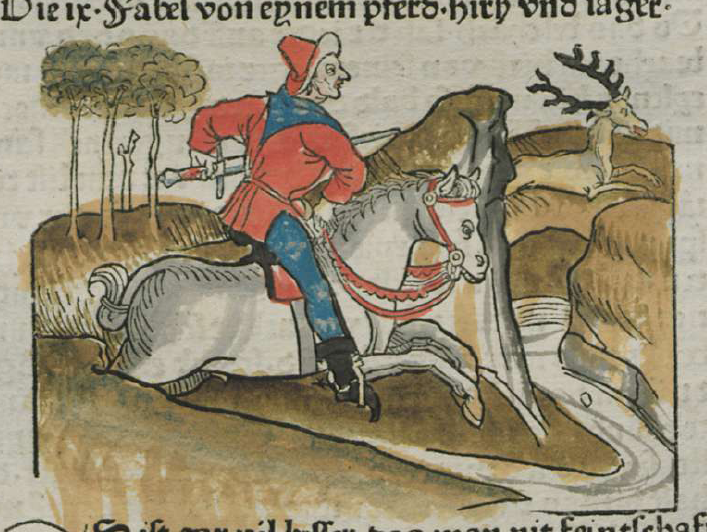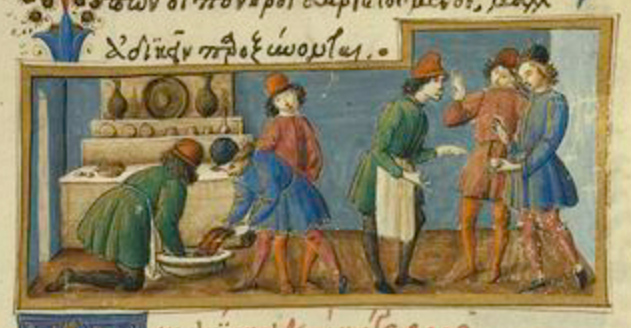31. Of the Members and the Belly
Formerly the feet and hands accused the belly that the gains of them were devoured by him being idle. They command either let him labour or not think to be maintained. He entreats once and again, yet the hands deny sustenance; the belly being exhausted with want, when all the limbs began to fail, then at last the hands were willing to be officious, but that too late: for the belly, weak by disuse, refused meat. Thus all the limbs, whilst they envy the belly, perish with the perishing belly.
Moral. The society of the members does not differ from human society. A member wants a member, a friend a friend; wherefore let us use mutual offices, mutual works; for neither riches, nor dignities defend a man enough. The only and chief safeguard is the friendship of many.

32. Of the Ape and the Fox
The ape prays the fox that she would give part of her tail to her to cover her buttocks, for that was a burden to her, which would be an use and honour to her. She answers that it was nothing too much, and that she had rather that the ground should be brushed with her tail than that the buttocks of the ape be covered.
Moral. There are who want; there are to whom there is over much; yet that is of a custom to no one of the rich that he bless the needy with his superfluous store.

33. Of the Fox and the Weasel
The fox, slender by long want, by chance crept through a narrow chink into a heap of corn, in which, when she was well fed, then her belly, being stretched, hindered her trying to go out again. A weasel afar off having seen her striving, at length advises, if she desires to go out, she would return to the hole lean, at which she had entered lean.
Moral. You may see many merry and cheerful in mediocrity, void of cares, free from troubles of mind. But if they shall be made rich, you shall see them go sad; never to smooth their forehead, full of cares, overwhelmed with troubles of mind.
34. Of the Horse and the Stag
The horse carried on war with the stag; at length, being driven out of the pastures, he implored human help. He returns with a man, he descends into the field, he, conquered before, now becomes conqueror; but yet the enemy being conquered and sent under the yoke, it is necessary that the victor himself serve the man. He bears the horseman on his back, the bridle in his mouth.
Moral. Many fight against poverty which, being overcome by industry and fortune, the liberty of the victor often perisheth; for the lords and conquerors of poverty begin to serve riches; they are tormented with the whips of avarice, they are restrained with the bridles of parsimony; nor do they hold a mean of getting, nor do they dare to use the things got, a just punishment indeed of covetousness.

35. Of Two Young Men
Two young men pretend that they would buy flesh at a cook's: the cook doing other things, one snatches flesh out of a basket, gives it to his companion that he may hide it under his garment. The cook, as soon as he saw part of the flesh stolen from him, began to accuse each of theft. He that had taken it away swears by Jove that he has nothing, but he who had it swears again and again that he had taken away nothing. To whom the cook says, "Indeed now the thief lies hid, but he, by whom you have sworn, looked on, he knows.
Moral. When we have sinned, men do not know it presently, but God sees all things, who sitteth upon the heavens and looks into the deeps.

No comments:
Post a Comment
Comments are limited to Google accounts. You can also email me at laurakgibbs@gmail.com or find me at Twitter, @OnlineCrsLady.